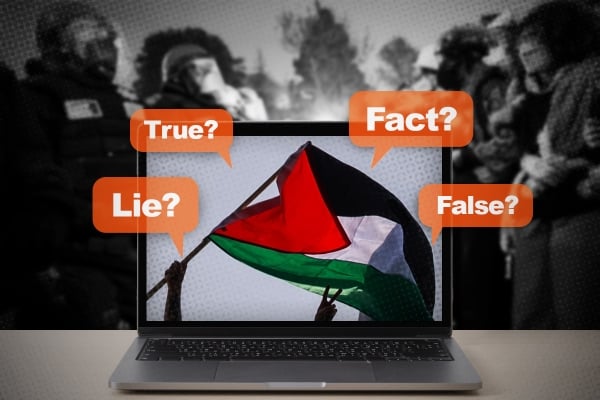In recent weeks, universities across the country have been at the center of heated debates and protests surrounding the Israeli-Palestinian conflict. Pro-Palestinian activists have been organizing and mobilizing on campus to show their support for the Palestinian people amid the recent escalation of violence in Gaza. However, amid these protests, universities have been facing a wave of misinformation that has been circulating on social media and in person, creating a tense and polarizing atmosphere on campus.
One of the key challenges that universities have been facing is the spread of misinformation and disinformation about the conflict. With social media platforms being a primary source of news and information for many students, it has become increasingly difficult to discern fact from fiction as rumors and false narratives spread rapidly. This has led to the amplification of divisive and harmful rhetoric, creating a hostile environment for students, faculty, and staff who may have differing opinions on the conflict.
Moreover, some pro-Palestinian activists have been accused of promoting anti-Semitic sentiments and targeting Jewish students on campus. Reports of vandalism, harassment, and intimidation have been reported at various universities, prompting concerns about the safety and well-being of Jewish students and the need for improved security measures on campus. This has further exacerbated tensions and strained relationships between different communities on campus, leading to a fragmented and fractured campus climate.
In response to these challenges, universities have been urged to take a more proactive approach in addressing misinformation and promoting dialogue and understanding among students. This includes providing accurate and reliable information about the conflict, hosting educational events and discussions, and fostering an inclusive and respectful campus culture that values diversity and promotes free speech.
Furthermore, universities have been called upon to adequately address instances of hate speech, discrimination, and violence towards marginalized communities on campus, including Jewish and Palestinian students. By enforcing strict anti-discrimination policies, providing support services for affected individuals, and implementing cultural sensitivity training for faculty and staff, universities can create a more inclusive and equitable environment for all members of the campus community.
Ultimately, universities play a crucial role in shaping the minds and perspectives of future leaders and global citizens. In times of conflict and crisis, it is essential for universities to uphold their commitment to academic freedom, diversity, and social justice, and to foster a campus environment that is conducive to learning, understanding, and respectful dialogue. By addressing misinformation, promoting dialogue, and safeguarding the well-being of all students, universities can help bridge divides and build a more peaceful and equitable world for all.



